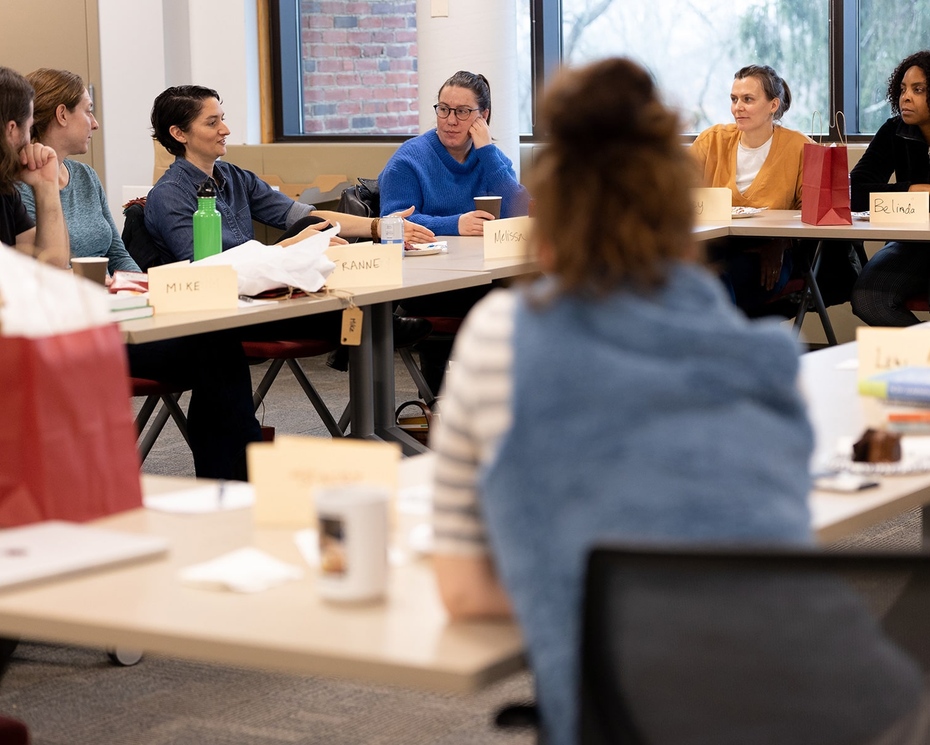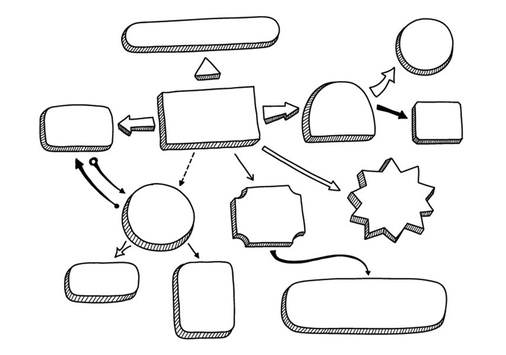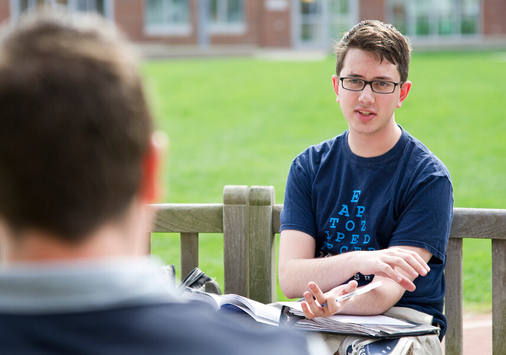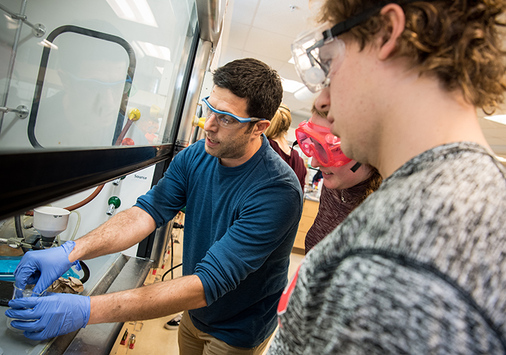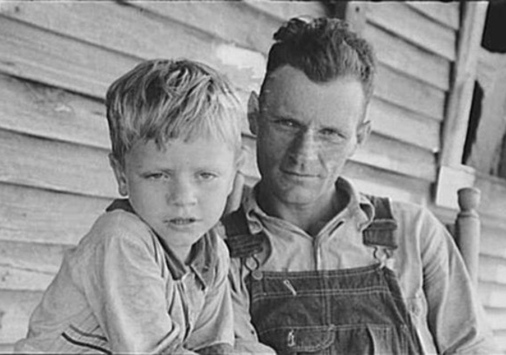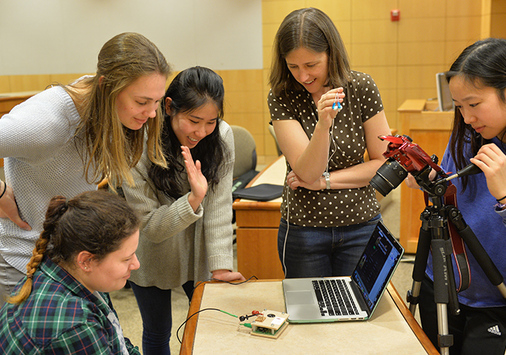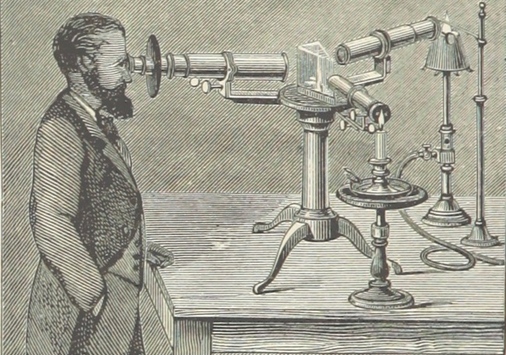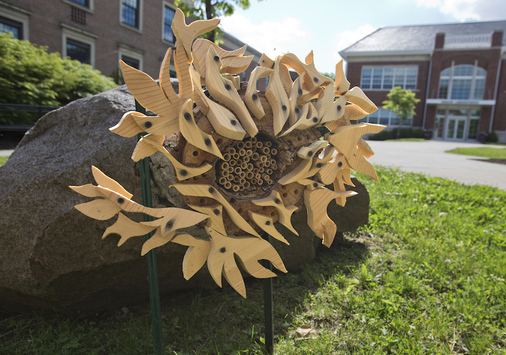Over winter break my family and I saw Hamilton: An American Musical in Chicago. Lin-Manuel Miranda’s production lived up to the hype, at least to my untrained ears and eyes. What struck me most, however, was what I learned about teaching as I watched a particular version of Alexander Hamilton’s life—and the earliest beginnings of the idea of the United States—unfold.
I get it. Lovers and critics might chide me: There isn’t a single overt expression about teaching across the musical’s clever lyrics or artfully choreographed scenes. Indeed, the few references to higher education come at the expense of the bursar of the College of New Jersey (what would later become Princeton), for whom Hamilton holds a disdain that, at least in the world of the musical, found expression in fisticuffs. (The historical record on Hamilton’s admission to Princeton is detailed in this blog post from the Seeley G. Mudd Manuscript Library.)
Fans and haters miss the point. Every scene of Hamilton is concerned with teaching, with unabashedly impressing why we must remain serious students of the serious ideas that led to the American Revolution. Miranda’s musical, inspired by Ron Chernow’s biography, seeks to inspire, provoke, question, reflect, and celebrate hard thinking and difficult conversations about the lessons that might be learned from our unfolding American experiment, an experiment—of ideas, passions, contradictions, violence, hope, and loss—upon which the musical’s principal protagonist exercised formidable, some might even say relentless, influence.
But the real link the piece makes to teaching comes toward the conclusion of the first act, when Hamilton and General George Washington meet after a tumultuous argument. Hamilton, frustrated over not having a military command and merely “keeping George’s journal,” had argued vociferously with the General, who sent him home during the crux of the Revolutionary War, summoning him back only after desperate pleadings from Hamilton’s closest allies and the possibility of victory. Washington recognized and admired Hamilton’s incredible potential, and knew he would be a fiercely competent military commander, but it isn’t until this pivotal scene, prior to the famed Battle of Yorktown, that “Father George” relents, and bestows upon Hamilton the honor and responsibility he long coveted.
The reward of rank is not made without some sage advice from Washington. That advice, really something of a confession, comprises the heart of the lesson Hamilton offers about teaching: Our failures are the means through which we learn best. The learning that matters most and makes the most difference happens in the crucible of adversity. And make no mistake, the adversity over which Washington reminisces was catastrophic. Here’s how he described it to his eager Secretary: “I was younger than you are now/When I was given my first command/I led my men straight into a massacre/I witnessed their deaths firsthand/I made every mistake/And felt the shame rise in me.”
The massacre to which Washington alludes happened on July 3, 1754, at Fort Necessity in Pennsylvania. The battle was starkly one-sided, betraying in every way Washington’s military inexperience. Chernow, whose biography of the first President is nearly as sterling as his treatment of Hamilton, describes the outcome like this:
By the end of the day, the rain-drenched stockade was a horrific swamp of mangled bodies, lying in blood and rain. The appalling casualty toll—a hundred men dead or wounded—represented a full third of Washington’s soldiers. The pitiless French also butchered every cow, horse, and even dog in sight. So one-sided was the outcome that the French suffered only three dead and seventeen wounded.
Washington surrendered at Fort Necessity, the only time in his long military career he did so. His reputation was temporarily bludgeoned, particularly abroad. And yet in just over two decades he would lead the Continental Army to decisive victory on behalf of American independence and shortly thereafter serve as the first president of the United States. Failure does not have to have the last word. This is something Washington understood well, as Chernow notes: “[The future president] always demonstrated a capacity to learn from missteps. ‘Errors once discovered are more than half amended,’ he liked to say.”
Within the world of Miranda’s musical, the earnestness with which Washington utters the refrain of the song he shares with Hamilton and the ensemble cast, “History has its eyes on you,” is less about the weight of history—it is always watching—and more about the ways each of us must assume responsibility to learn and grow and courageously shape those relationships and events that matter most to us, even when we have “no control [over] who lives, who dies, who tells [the stories].” Reputations rise and fall, and history unfolds, but bravery, wisdom, curiosity, humility, compassion, and judgment are virtues we can faithfully display, every single day. In these especially tumultuous times there are no small gestures.
A new semester means many things. My hope for yours is this: The realization that the work you do in partnership with your students to build and sustain communities of genuine learning, that this work matters. When classes don’t go as well as you’d like, when you or your students fail, despair not. Learn, grow, risk, persist. And remember: You are not alone.
